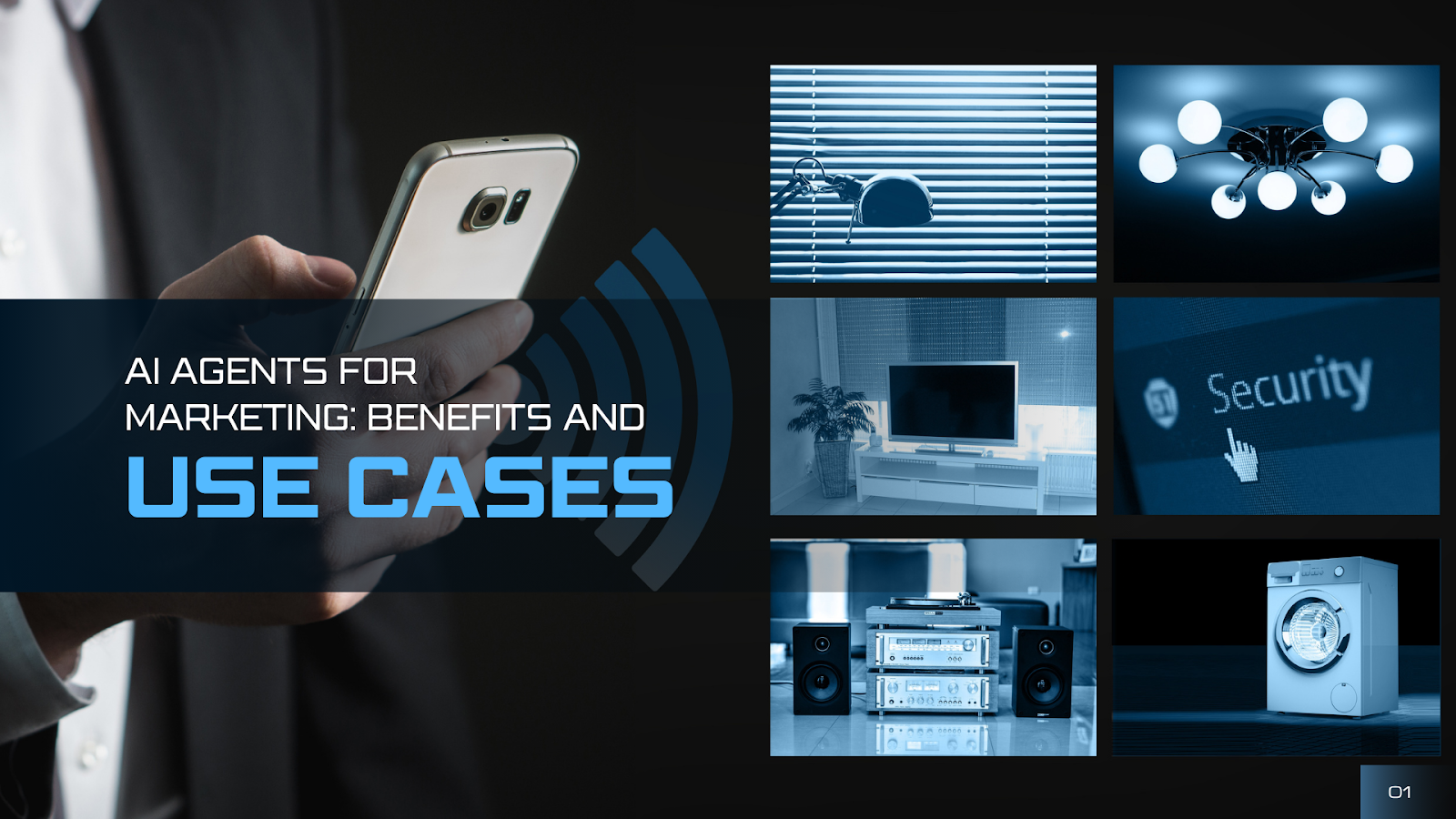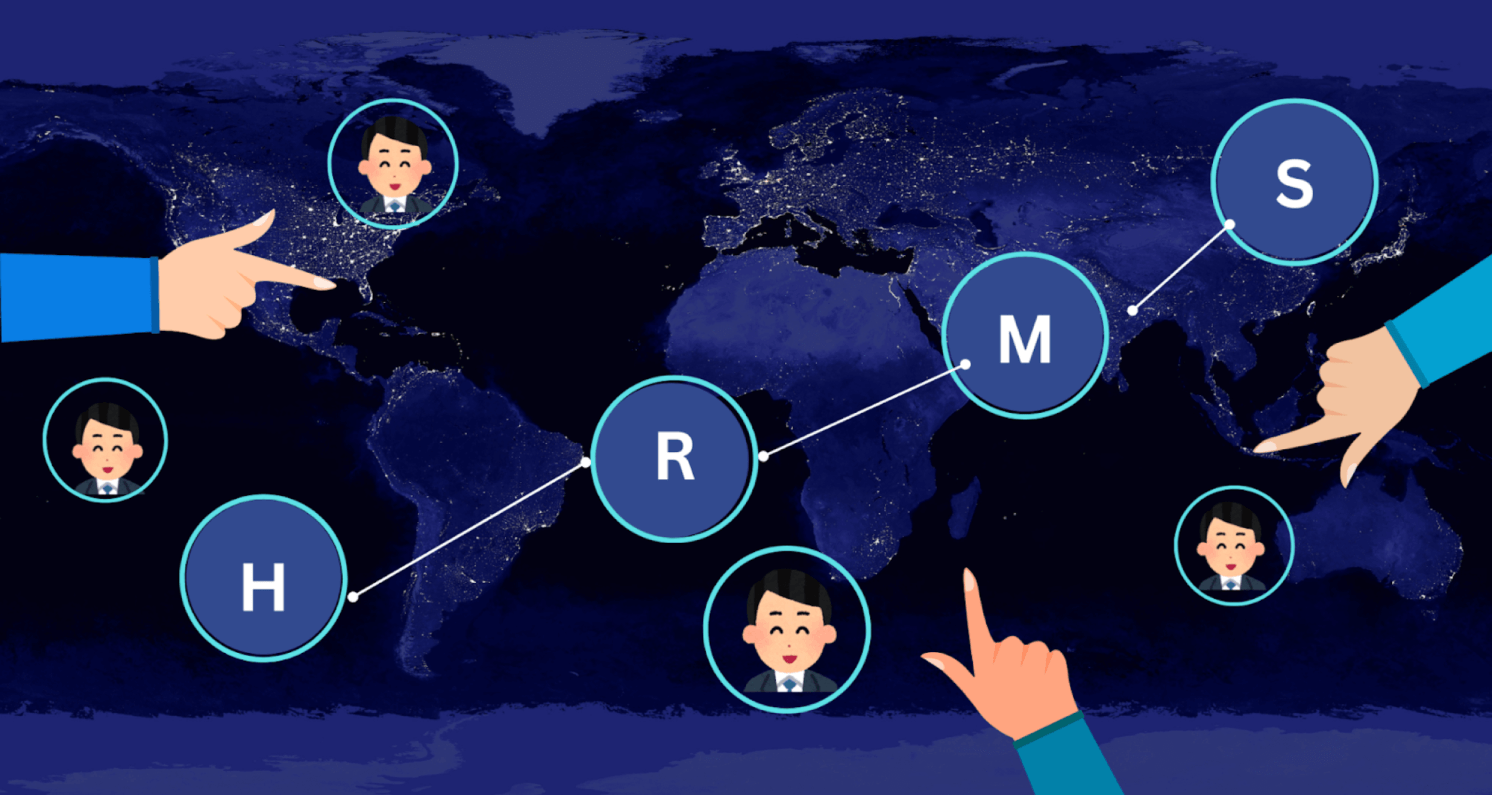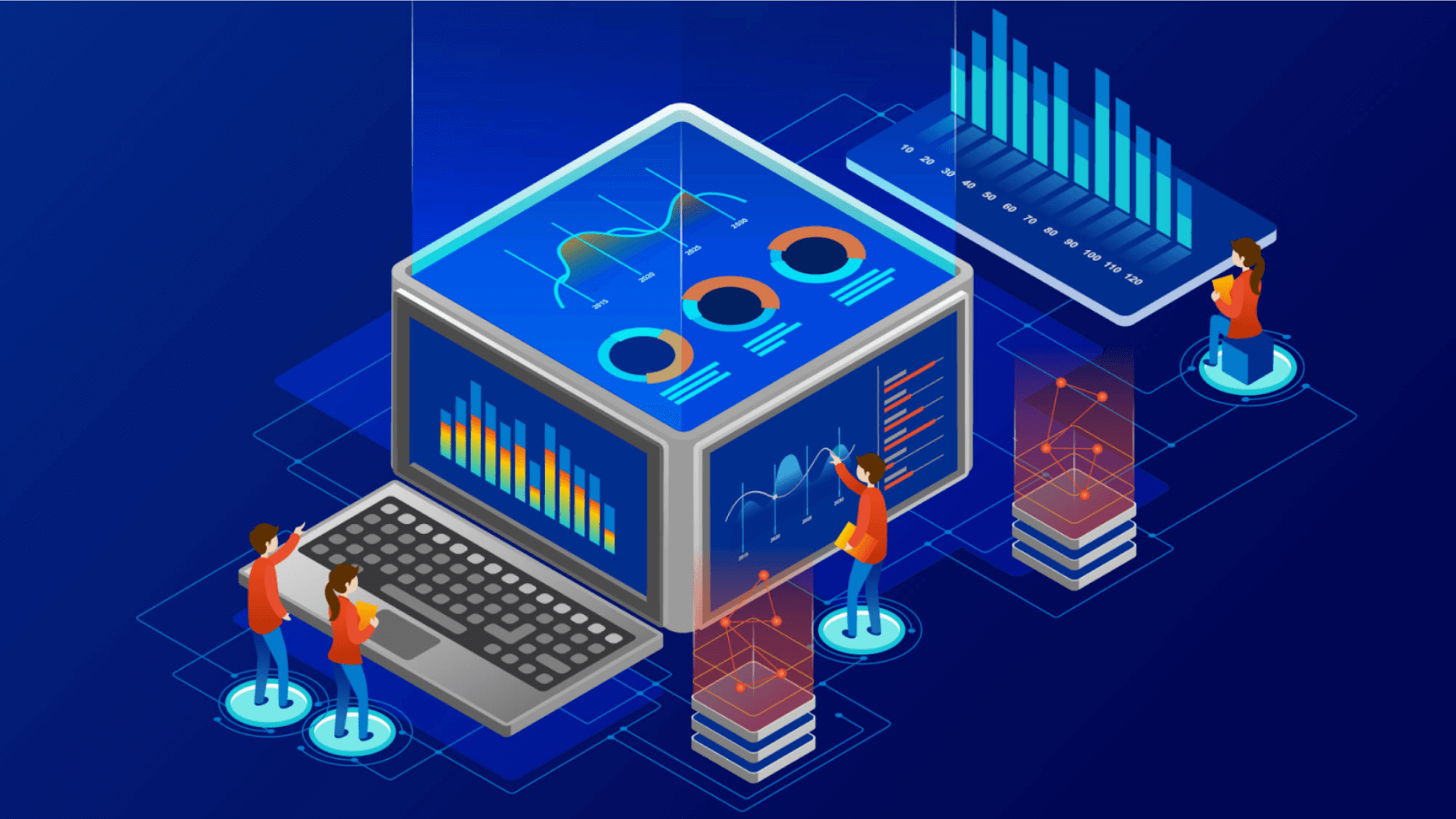Table of Contents:
- 1. Best AI chatbots for marketing
- 2. AI customer service bot
- 3. AI in marketing automation
- 4. AI-powered marketing services
- 5. AI-driven marketing automation
- 6. Software development company
Over the last decade, we have witnessed major technological advancements that have transformed human functioning. From changing our screen sizes to easing our work patterns, the technical revolution has caught us off guard.
One of the major advancements is the introduction of artificial intelligence (AI). AI has undoubtedly left its imprint on every sector and industry. However, AI’s contribution in easing the work of marketing professionals has been exceptional.
AI helps organize, streamline, and optimize marketing activities so professionals can focus on other important tasks. Trained AI analyzes the customer data and tracks their activity to predict their next move and suggest products accordingly.
Apart from that, there are many other ways AI agents have played an important role in reforming marketing. So, in this blog, we will understand all about AI-driven marketing automation. From what AI agents are, their benefits in marketing, use cases, to their challenges. So let’s dive in.
What are AI Agents?
AI agents are self-directing software programs capable of perceiving their environment, making decisions, and taking actions toward particular goals, often with little or no human intervention. Compared to simple automation, which is based on fixed rules, AI agents operate on far higher levels of autonomy provided by technologies such as machine learning, NLP, and real-time data analysis, feeding into the AI.
The main difference between AI agents and classical automation is that the former includes an intelligent nature and adaptability. Classic tools run repetitive tasks based on fixed conditions. AI agents analyze data, learn from user interactions, and modify their actions to achieve the best result.
Some examples of categories of AI in marketing automation include:
- Conversational Agents (chatbots, virtual assistants) engage the user in a dialogue through text or voice.
- Recommendation Agents suggest products or content based on user behavior and preference.
- Predictive Agents forecast customer behavior, including churn, conversion, or intent to purchase.
These agents employ large datasets and smart algorithms to ascertain the context and intent behind user behavior; hence, they are becoming indispensable tools in a marketer's arsenal.
Key Benefits of AI Agents in Marketing :
The quality of AI agents to ease the workload for marketers makes it preferable to be used by almost everyone. Here are some benefits of these AI agents to help you understand them better.
1. Hyper Personalization at Scale :
AI agents allow brands to offer personalized experiences to millions of users at once. By looking at what people browse, buy, and how they engage, companies can suggest products, tailor messages, and even change website content right away
Example: AI email platforms create personalized subject lines, content blocks, and product recommendations on a per-user basis, which significantly improves open rates and conversion. Moreover, push notifications can also be timed and personalized for maximum effect.
2. 24/7 Customer Support :
AI customer service bots or conversational AI agents, such as chatbots and virtual assistants, leave no room for interruption in customer interaction. These can resolve commonly asked questions, assist with purchases, and sometimes elevate more complex issues to human agents
This means immediate responses with great user experience and reduced operational costs, especially for a business with a global presence and working across multiple time zones.
3. Enhanced Customer Journey Mapping :
AI agents collect and analyze touchpoints across email, web, social, and mobile interactions to build an enriched customer journey map. From here, marketers can summarize intent, preferences, and decision-making behaviors.
Thus, creating an opportunity for more relevant messaging and strategically timed nudges toward conversion.
4. Efficient Campaign Management :
A/B testing for the ad creative involves segmenting audiences and using dynamic budget allocation according to the situation. AI agents streamline execution in the campaign. Performance is monitored in real-time. This allows continuous optimization of targeting, content, and channels.
Therefore, guesswork and manual operations are eliminated, allowing marketers to spend more time on strategic planning than micromanaging operations.
5. Data Driven Decision Making :
AI agents can rapidly analyze vast amounts of data at speeds unattainable by human teams. They identify trends, detect anomalies, and uncover actionable insights. Additionally, they examine customer behavior patterns, moods, and market conditions that often go unnoticed.
Use Cases of AI Agents in Marketing
AI is the new torchbearer of almost any aspect of modern marketing operations. From learning data to respond in real time to making decisions in automation, this adaptive tool can perform diverse functions. Here are some of the most significant use cases in advertising today:
1. Conversational AI for Customer Interaction
Conversational AI agents, such as chatbots and voice assistants, are frequently customers' first point of engagement with the brand. They often help answer frequently asked questions, qualify leads, schedule appointments, and help select the product.
Example: Sephora's conversational AI agent is the best chatbot for marketing as it induces recommendations based on user preferences and previous purchases. It immerses users in a virtual experience that mimics the in-store experience, thus augmenting engagement and conversion
These bots bring about the reduced workload of support teams, better response time, and a consistent brand voice.
2. Predictive Analytics and Lead Scoring
Another brilliant work of AI agents is understanding customer behavior across websites, emails, CRMs, etc., and scoring leads according to their probability to convert. This approach is much more beneficial for B2B marketing objectives, where narrowing down on the few presold leads that are of high value is of utmost importance for increasing the productivity of sales teams. AI agents assess behavior, such as repeat site visits, downloads, and email opens, to assign scores and suggest what steps to take next. The result? A sales team concentrating on prospects that hold promise rather than dissipating effort on the rest, thereby increasing conversion rates
3. Content Creation And Curation Powered By AI
AI writing assistants have turned the tables in the content marketing industry. They can create everything from product descriptions to blog posts, ad copies, and social media updates through NLP and training data.
Now, tools like Jasper, Copy.ai, and Writesonic allow marketers to create quality content at scale to bypass creative bottlenecks.
AI agents also curate content by understanding what resonates with their target audiences. They analyze engagement metrics and recommend themes, formats, and publishing schedules to keep the content strategy dynamic and data-driven.
4. Programmatic Advertising
Programmatic advertising is where the most advanced application of AI agents can be found, with real-time bidding and ad placements done autonomously. The agents control variables like user demographics, history on the Internet, and contextual data to deliver ads proven most relevant to the right users at the right time.
Example: Google Ads Smart Bidding optimizes bids using machine learning based on conversion goals. The marketer states the goal, and the AI does all the work, automatically adjusting bids to achieve maximum ROI.
AI agents can also manage multi-channel campaigns and simulate real-time reallocation of budgets and performance improvement suggestions, all without human intervention.
5. Email Marketing Optimization
AI agents optimize email marketing using variables like the best time to send emails, an engaging subject line, and content blocks customized for individual user preferences.
These agents analyze user behaviors, such as open rates, click-throughs, and purchase history, to personalize emails on the fly, increasing engagement and conversion. They keep on improving their strategies based on performance data over time, thus creating smarter and much more effective campaigns.
This way, email fatigue among subscribers is minimized, and brands stay relevant among noisy inboxes.
6. Customer Experience Feedback Analysis
Customer satisfaction and brand perception can be deduced by AI agents through sentiment analysis, which involves immense volumes of unstructured data in product reviews, on social media, or survey outputs.
These agents analyze the feedback through Natural Language Processing or NLP and cluster the feedback around themes to spot the emergence of issues and track changes in sentiment over time. Armed with precise feedback, a brand can improve product strategies, proactively manage crises, and evolve the brand image.
Sentiment around a certain product line dipping suddenly can act as an alarm for the marketing and customer experience teams to investigate and respond quickly.
7. AI For Social Media Management
AI agents resolve order issues according to their posting-defined schedules, suggest best time posting options, and generate captions or hashtags from content themes. Meanwhile, some advanced tools tap into trending conversations and recommend content opportunities tailored to a given brand’s niche.
They also monitor for engagement, respond to common questions, and flag suspicious activity for a human to evaluate. These allow brands to maintain an always-on social presence with little manual effort.
AI agents can assess campaign performance across platforms to derive insights into future strategies, from influencer partnerships to content types and audience targeting.
Challenges and Considerations of Using AI Agents
Even though AI agents have brought a lot to marketing, they simultaneously face several challenges that will have to be solved before being utilized in an ethical, effective, and sustainable way by the business:
a. Data Privacy and Compliance
AI agents require a good volume of customer data to work efficiently. Hence, privacy becomes such a big issue, as the use of data for advertising has been tightly regulated by standards such as the General Data Protection Regulation and California Consumer Privacy Act. Marketers now have to gain consent before data can be used, ensure transparency along the whole length of the data opt-out, and there are huge penalties for misuse or mishandling of personal data. For the marketing side of the business, strong data governance policies will have to be set up, and work with AI vendors who will focus on compliance.
b. Over Autonomy Risk
Automation may promote efficiency, but it is often over-reliance upon AI agents that render customer interaction impersonal. Consumers will still prefer empathy and human contact while complaining about fewer complaints or more complicated issues valued by some in the in-between time. There must be an element of balancing AI efficiency with meaningful human interaction for trust and loyalty sustainability.
c. Bias in Algorithms for AI
Inadvertently, AI agents can inherit bias through their training data. As a result, they may either intentionally target a certain group or completely exclude it. To avoid this bias and enhance fairness, ethical AI development must have diverse data sets, continuous auditing, and transparency in the decision-making process.
d. Integration with Existing Systems
AI agents must integrate smoothly with CRM platforms, marketing automation tools, and data warehouses. Poor integration can lead to fragmented insights and inconsistent experiences.
Meanwhile, legacy systems may represent a technical debt demanding upgrades or middleware solutions.
e. Monitoring and Maintenance
AI agents are not “set-and-forget” tools. They require continuous monitoring, testing, and optimization to adapt to evolving market and consumer behavior and campaign goals. Therefore, regular performance evaluations are quintessential for everything to remain relevant and accurate.
Future of AI Agents in Marketing
The future of AI agents in marketing must be entering a transforming phase because of the rapid changes in technology and the rising adoption of businesses in the use of such advancements.
One key development is generative AI, which enables marketers to create and deploy content and hyper-personalized marketing experiences, such as personalized video ads and dynamic landing pages, in real-time.
Emerging interfaces will also shape the next-generation AI agents. Voice assistants and AR/VR environments. For instance, it would provide the setting for a potential virtual shopping assistant in the metaverse or voice-powered agents guiding the user in a real-time fashion while making a very difficult purchase decision.
AI agents also define influence marketing by identifying the ideal partnerships according to patterns of engagement, sentiment, and brand alignment. In product research and development, AI agents can analyze consumer feedback in volume to guide design, features, and market fit.
Also noteworthy is that AI has become increasingly available at less than high costs for small or medium enterprises (SMEs). As cheaper, more accessible platforms enter the market. Thus, AI agents are no longer confined to giant corporations, exciting concepts in digital marketing innovation.
Conclusion
AI agents are transforming marketing by making it smarter, faster, and more personalized for brands to connect with individual customers. They automate repetitive tasks, optimize ad campaigns, provide around-the-clock customer support, and deliver behavioral insights, becoming essential tools for modern marketers.
However, adopting AI-powered marketing services requires careful strategy and supervision to address data privacy and biases. Rather than solely focusing on performance, they also enhance customer satisfaction and loyalty.
As generative AI, voice interfaces, and immersive technologies advance, the capabilities of AI agents will expand, democratizing access to cutting-edge marketing innovations, even for smaller organizations. The future of marketing lies in combining human creativity with machine intelligence, with AI agents at the core of this transformation.
Partner with BestPeers, a leading software development company, to integrate AI agents into your marketing strategy. Boost personalization, streamline campaigns, and drive smarter decisions with our cutting-edge solutions. Let us help you stay ahead in the digital race—connect with BestPeers today to transform your marketing with AI.




